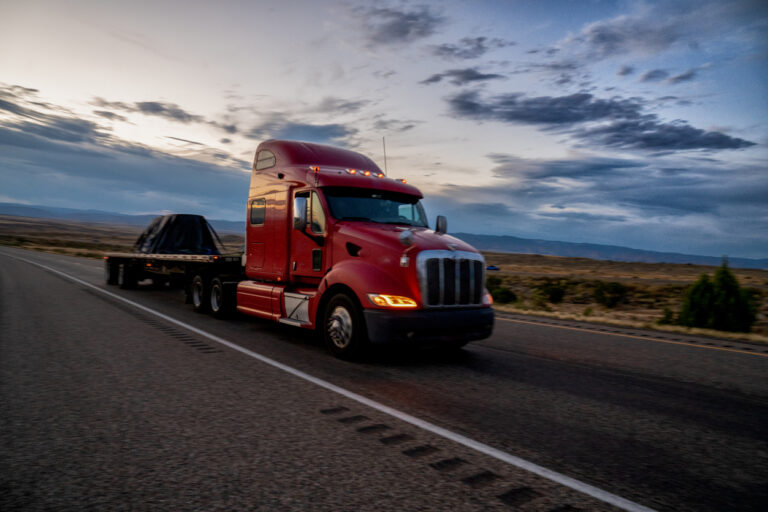Types of Commercial Driver’s Licenses

Commercial trucks require training, skills, and special knowledge to operate. Therefore, drivers must obtain a commercial driver’s license (CDL) to drive a large truck legally. Even though states issue CDLs, the Federal Motor Carrier Safety Administration (FMCSA) is the agency that sets the rules and standards for obtaining a commercial driver’s license.
The Georgia Department of Driver Services issues commercial driver’s licenses. Basic requirements apply to each type of commercial driver’s license. Furthermore, each CDL class may have additional requirements.
General Requirements for a Commercial Driver’s License in Georgia
You must be at least 18 years of age to apply for a commercial driver’s license in Georgia and have a valid Georgia driver’s license. However, a Georgia-only restriction remains on your CDL until you turn 21 years old. The restriction permits you to drive a truck only within the state of Georgia. When you turn 21 years old, you can have the restriction removed.
As of February 7, 2022, entry-level drivers are subject to the Entry-Level Driver Training (ELDT) regulations of the FMCSA. They must complete entry-level training before taking their skills test or an H Endorsement Knowledge Test.
You must obtain a commercial license permit (CLP) and have it for at least 14 days before applying for a CDL. You must pass vision, skills, and knowledge tests when applying for a commercial driver’s license. You must also have a clean driving record, meet the FMCSA’s medical requirements, and pass a background check.
Classes of Commercial Driver’s Licenses in Georgia
You can apply for a Class A, B, or C commercial driver’s license. Each CDL class authorizes you to operate specific types of commercial vehicles.
Class A Georgia CDL
Class A commercial licenses allow you to operate a tractor-semitrailer combination or a truck trailer with a combined weight exceeding 26,001. The unit you are towing has a weight exceeding 10,000 pounds. You can also operate a Class B and C vehicle with the required endorsements. Before obtaining a Class A CDL, you must have a Class C driver’s license.
Class B Georgia CDL
Class B commercial licenses allow you to operate single vehicles weighing 26,001 pounds or more. The unit being towed must weigh less than 10,000 pounds. You must have a Class C driver’s license before obtaining a Class B CDL. Your Class B CDL allows you to operate motor vehicles in Class C.
Class C Georgia CDL
Class C commercial licenses are issued to operate a vehicle transporting 16 or more people, including the driver. This class also allows you to transport hazardous materials in amounts that require placarding.
Endorsements for Georgia Commercial Driver’s Licenses
You may apply for endorsements to your CDL that allow you to transport certain loads or operate specific commercial vehicles. Each endorsement requires additional knowledge and/or skills tests. CDL endorsements include:
- Endorsement H (Hazmat): Allows you to transport hazardous materials that require placing a placard on the truck.
- Endorsement N (Tankers): You can drive a tanker truck hauling gasses or liquids.
- Endorsement P (Passenger): Allows you to drive a bus, including a school bus, which transports 16 or more passengers, including the driver. If the bus is a school bus, you must also pass the requirements for an S Endorsement.
- Endorsement S (School bus): Allows you to drive a school bus with 16 or more passengers. You must pass a background check and meet other requirements.
- Endorsement T (Double/Triple Trailer): You can drive a vehicle that hauls two or three trailers.
- Endorsement X (Hazmat and tanker combination): You can drive a truck transporting hazardous materials.
CDL endorsements aim to ensure truck drivers receive extra training for high-risk situations, such as transporting a lot of people or dangerous materials. Hauling multiple trailers also requires special skills and knowledge.
What Should I Do After a Truck Accident in Lawrenceville, GA?
Commercial truck accidents can cause wrongful deaths and catastrophic injuries. The steps to take after a large truck accident include:
- Call 911 for emergency medical services and law enforcement officers
- Protect yourself from further injury or danger
- If possible, take photographs of the accident scene and make videos (Caution: Do not place yourself or others at risk, as truck accident scenes can be extremely dangerous.)
- Ask eyewitnesses for their names, cell numbers, and other contact information
- Seek immediate medical treatment for your injuries
- Document your economic and non-economic damages
You may also want to contact a truck accident lawyer for advice. Truck accident cases are very complicated. They may involve multiple parties, significant damages, and complex federal trucking regulations. An experienced accident attorney understands what is involved in pursuing a truck accident claim and has the resources necessary for a complicated case.
Get More Information About Truck Accident Cases
Contact Lawson Personal Injury Attorneys for a free consultation with a Lawrenceville truck accident lawyer. Let us help you seek the compensation you deserve from the negligent parties who caused your injuries.
